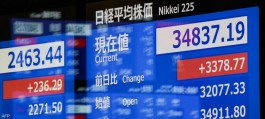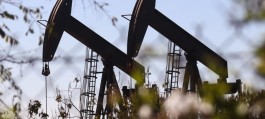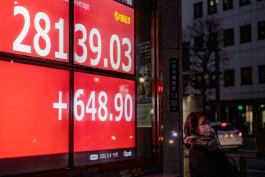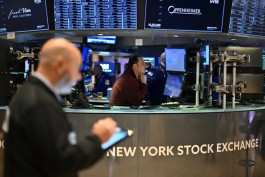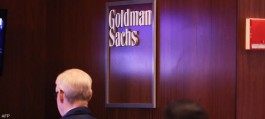Prime Minister Mohammed Shia al-Sudani confirmed on Saturday that Iraq is close to exporting gasoline, while moving forward with strategic projects to produce petroleum derivatives to support self-sufficiency.
Al-Sudani's statements coincided with the inauguration of the catalyst cracking unit project at the Shuaiba refinery in Basra Governorate, with a capacity of 107,000 barrels per day.
The Prime Minister added that the project, along with other refinery expansion projects, will help Iraq qualify to export derivatives after achieving self-sufficiency.
Hussein Talib, the general manager of the Iraqi Oil Products Distribution Company, predicted in an interview with Asharq Al-Awsat that Iraq would stop importing gasoline by the end of this year or early 2026. This would be after achieving self-sufficiency in diesel and kerosene, as a result of a plan developed by the Ministry of Oil to develop and restart national refineries.
Catalyst crushing project capabilities
Oil Minister Hayan Abdul-Ghani said on Friday that the catalyst cracking project is one of the largest strategic projects in the refining sector, valued at approximately $3.75 billion. It is being financed by Japan through a soft loan with very low interest rates. Repayment will begin 10 years after the project's completion, with repayment extending over a period of 30 years, making it one of the best soft loans Iraq has ever obtained.
Abdul Ghani explained to reporters yesterday, on the sidelines of his visit to Basra, that the project will produce high-octane gasoline 95, and relies on converting black oil into high-value petroleum products, such as producing 4,200 cubic meters per day of high-octane gasoline, more than 2,000 cubic meters per day of fuel oil, and more than 750 tons per day of gas, liquids, and light white products such as naphtha and others.
Iraq saves billions in import costs
Al-Sudani said the government aims to convert 40% of Iraq's oil exports into high-value products by 2030, adding that we have achieved 35% of this goal.
He added: Our plan will save $4 billion, which was allocated to importing gas, and 6 trillion dinars, which was spent on importing petroleum derivatives.
With the project's completion, Iraq will completely stop importing gasoline. Import costs, which reached $5 billion annually when the government was formed, have fallen to less than a quarter of that amount over the past year, according to the Iraqi Oil Minister.
Faw Investment Refinery
Al-Sudani hinted that among the strategic projects expected to be implemented is the 300,000 barrel-per-day investment-grade Faw refinery, which will be operational very soon.
Iraq is the second-largest producer in the Organization of the Petroleum Exporting Countries (OPEC) and a member of the OPEC+ alliance, which has scaled back years of oil production cuts aimed at supporting energy markets. The International Monetary Fund expects Iraqi oil exports to reach $84.2 billion in 2025, down from $99.2 billion last year, and to decline to $79.2 billion in 2026.
Iraq's efforts to boost oil resources
Iraq is counting on boosting its oil resources during the current period, as Baghdad has taken several serious steps in this regard, including resuming the pumping of Iraqi Kurdistan's oil through the Turkish-Ceyhan pipeline, after a halt of more than two years. This agreement grants the federal government control over the region's exports. Under this agreement, the federal Ministry of Oil receives the crude produced from fields located in the Kurdistan Region and exports it through the Iraqi-Turkish pipeline, allowing the pumping of 190,000 barrels per day into global supplies.
In the south, Iraq is launching offshore pipelines to provide multiple options for exporting crude oil from its southern ports. The latest of these is the third offshore pipeline project, with a design capacity of 2.4 million barrels per day and an operational capacity of nearly two million barrels per day. The project connects three main ports: Basra Oil Port, Khor Al-Amaya Port, and the SPM-4 export platform. This will enhance and stabilize export capacity from the south and contribute to a significant increase in exports.
This comes after international oil companies returned to invest in Iraq. US oil giant ExxonMobil announced the signing of an agreement paving the way for its return to Iraq through exploration of the giant Majnoon oil field, ending a nearly two-year absence from the country.
The Iraqi government is seeking to attract more foreign investment to the oil sector, aiming to increase crude oil production capacity by 50% to exceed six million barrels per day by 2028.
With approximately 145 billion barrels of proven oil reserves, Iraq aims to increase these reserves to more than 160 billion barrels through multiple development projects.
Over the past two years, Iraq has awarded nearly 30 contracts to companies such as Total, BP, and Chinese firms, with plans to launch new licensing rounds this year.


















